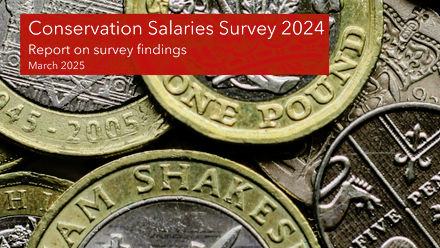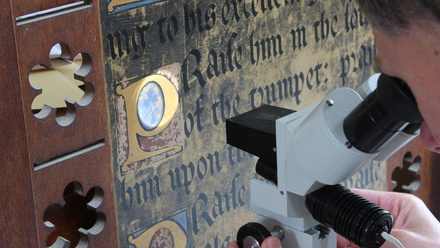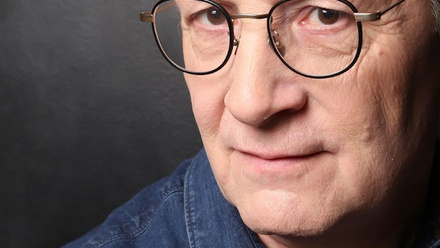Conservation is an international discipline, and Icon’s international membership tends to consist of about 18.5% of the total. Especially with the proliferation of online webinars and other means of communication, Icon has welcomed a growing international engagement with the organisation.
But what do our international members value most about Icon? How can we better-support them, and what is the professional context they face in their own countries? This winter, we launched our first-ever survey of Icon’s international members to find out.
With a response rate of 47%, much higher than previous surveys, the results indicated positive perception of Icon abroad, and Icon Accreditation was seen as a particular strength.
One respondent wrote:
It is the most famous and serious accreditation group for conservators… internationally well known.
Respondents demonstrated a high level of engagement despite distances involved. More than 40% had previously attended in-person events, while 90% reported reading Icon News regularly. Many respondents reported they studied conservation in the UK and retained their Icon memberships after returning to their home countries. Contrasting this with a comparable organisation in their own backyard, another respondent wrote:
I have found… that Icon has been much more approachable and responsive to its members.
Perceptions of Icon as a ‘dynamic’ organisation were motivating factors for international conservators to maintain their memberships:
I studied in England and can relate to Icon’s work. I find it more up to date than the comparable organisation in my home country.
In this light Icon’s publications were highly valued, and Icon was seen as:
a very important source of information in the conservation sector. The publications are very worthwhile.
Running through the responses were clear indications that international members were ready and willing to enhance their involvement with Icon. Already, nearly 10% of respondents had served on an Icon Board, Group or Committee within the last three years, while more than 45% reported an interest in gaining Icon Accreditation, with 98% of these keen to hear more about a potential online Accreditation process.
To achieve this, respondents highlighted the barriers to be overcome. Time and cost were principal among these, alongside perceptions that the ACR standard was recognised abroad in some areas more than others.
To make the most of Icon’s established international interest, respondents encouraged Icon to invest in greater international visibility – to co-sponsor online events, to establish closer partnership relationships with similar organisations, and even to leverage our established networks of international members to create Icon Groups and Networks in target countries abroad to deliver events programmes.
Icon will be taking all of these ideas to heart as we carefully consider how we best-support our international members as part of development work for Icon’s Strategy 2030. Key among these will be a dedicated session for international members to feed their views into the development of the new Strategy; and further exploration of the potential for the ACR standard to be exported abroad via online assessments. New marketing strands will promote Icon Accreditation internationally, while there will be a special call for international members to contribute to Icon News and website outlets.





